What Exactly is Search Engine Optimization?
The definition of Search Engine Optimization is really quite simple. SEO is about optimizing your site for search engines.
It involves taking certain measures to ensure that your website is visible when someone performs an online search.
When you implement SEO efforts, your site gains domain authority in the eyes of search engines. A proper SEO technique can exponentially boost your site’s ranking in search results.
A good SEO strategy is holistic and ongoing. It’s not something you do once, but continue to devote energy to overtime.
To implement a successful SEO strategy for your brand, you’ll need a lot of content that is properly optimized for search engines and also appealing to readers. It may take a lot of time to create the content on your own. Even then, there’s no guarantee it will perform well.
That’s the reason why we created SEO copywriting services for business owners and professionals like yourself.
Importance of SEO
 The best part of SEO is that it can benefit anyone. Even a small business can outrank a large corporation with the help of an SEO expert.
The best part of SEO is that it can benefit anyone. Even a small business can outrank a large corporation with the help of an SEO expert.
The hard truth is this: you could have the best product in the world, but if your site doesn’t show up in search engine rankings, no one will know about you. If your competitors appear before your site, a searcher will click on them. Most searchers don’t leave the first page.
Even if you have a physical storefront, online customers often far outnumber those who come in-store. You’re also less limited based on location. However, site page SEO can also increase visibility for your physical location.

By creating listings for your local business and utilizing local SEO, you can raise awareness about your business. By targeting local keywords, your site can rank for searches such as “Electronic Stores near Los Angeles”. If you set up local SEO directory listings, your store could appear on google maps as well.
SEO is generally less expensive than ad spending. If it’s done right you can get traffic and leads from Google for free every month.
The ideal case would be the ability to afford both paid search and SEO efforts. The more digital marketing channels you take advantage of, the more traffic you capture and more leads you drive to your business.
Top SEO Tactics
There are many different SEO techniques and you don’t have to be an SEO professional to use them. In fact, when you enlist SEO services, SEO experts will likely provide all of the services mentioned below.
SEO tactics are no secret, but knowing them and implementing them are two different things. That’s why many businesses outsource their SEO work. Feel free to check out how ContentAdore can help your business.
It’s also important to note the difference between on page SEO and off page SEO. On site SEO are efforts you make on your web pages whereas off site SEO include social media marketing (SMM in SEO), overall reputation management, and building quality backlinks.
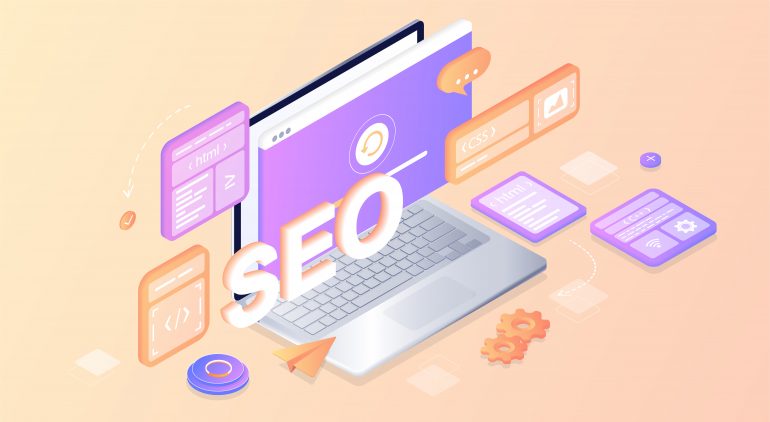
The most notable SEO tactics are:
- High quality content pieces that target keywords
- Link building efforts
- Guest blogging
- Optimized site for mobile devices
- Enhanced site speed
- Clear internal links, URLs, meta titles and descriptions
The above are all elements of white hat SEO. White hat SEO refers to acceptable SEO methods that are search engine friendly.
Sometimes, the only SEO technique that digital marketing professionals invest in is content that targets short and long tail keywords relevant to their target audiences. This is perhaps the greatest SEO important method, but it’s only one aspect.
On the other hand, there are some tactics known as black hat SEO that you need to beware of. Black hat SEO goes against major search engines’ guidelines and can get your site blacklisted. These tactics try to trick search engines and include keyword stuffing, link schemes, and falsified data.
Subscribe to our email list to stay in the know on SEO tactics and other related news.
What do Search Engines Look For?
Search engine crawlers “crawl” websites and store information for search engines. They basically tell search engines what the site pages are about and where/how (if at all) the website should be shown.
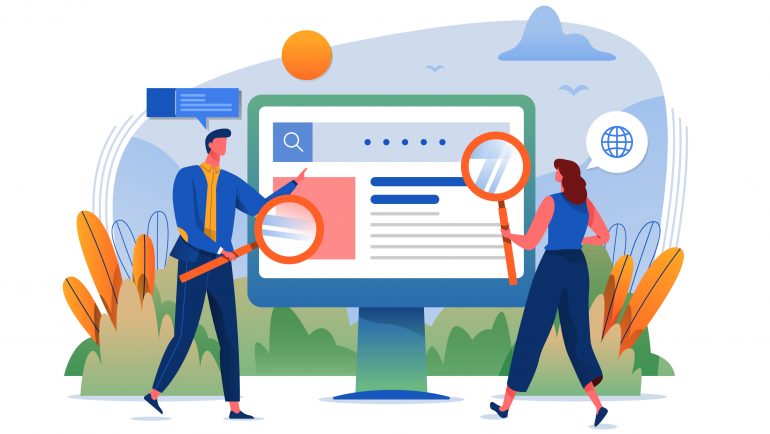
These crawlers aren’t people, but rather they’re bots. That’s why it’s especially important to be very clear in technical terms and with on page content. A bot can’t infer the things that a person can so you have to spell things out explicitly.
Even more than backend site data, a crawler will be scanning for keywords in order to determine precisely what your site pages are about. If your content is keyword rich (without being excessive), unique (not duplicative), and structured logically with headers, it will be easy for the crawler to know what it’s about.
Why Search is Important
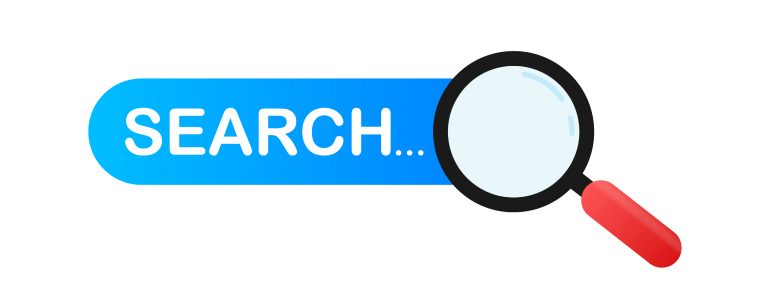
Users trust search engines to show them what they’re looking for. When they’re searching for a particular product or want to learn information about something, they expect to see a list of websites that offer that.
There are different types of searches, but SEO is most concerned with non-branded organic search, meaning that the searcher may not be familiar with your brand so don’t include it in their search query. They’ll discover you in the search results.
Searches may have different intentions as well. A user could carry out an informational search such as “what is SEO?” or they could carry out a more transactional search such as “SEO agencies for hire”. This matters because it indicates how far down the sales funnel a searcher is.
Even though you may be tempted to target these high-intent transactional keywords, it can also be beneficial to target the more informational keywords. These are great for brand awareness and establishing your brand as a thought leader in your industry.
Search Engine Results Pages

Google is much more than a list of links. There are tons of special features that give your site the opportunity to occupy more real estate on the page.
For example, we’ve all seen the People Also Ask result and those long panels along the side of the page known as Knowledge Panels. The more space your site takes up on the search engine the better!
Everyone wants to be on the front page of Google, but to achieve that, you have to have a solid SEO strategy. Prioritize the tactics mentioned above and you’ll be on the path to a higher ranking. Just remember that it won’t happen overnight.
Why Traffic is Important

It may go without saying, but when we say traffic we aren’t talking about the type on the road that makes you late to work. That traffic is the worst, but this type of traffic is crucial for your business!
More traffic means more potential customers. Ultimately, the purpose of all digital marketing is to boost website traffic and overall engagement with a brand. Whether it’s social media, email, or influencer marketing, they all aim to entice more customers.
Types of Traffic
Organic
Organic search traffic is a result of SEO. Someone who comes upon your site organically may not have been familiar with your business before. They searched for something related to your business. It could be information included in a blog post, a product, or description of a service you offer. No matter what it was, your site appeared.
This is the magic of SEO! Organic traffic is the most sustainable form of traffic. Think of it like a plane on autopilot. Yes, you have to continually devote efforts towards SEO goals, but you website’s traffic will keep rising. Once you hit your stride, it’ll come naturally.
Paid
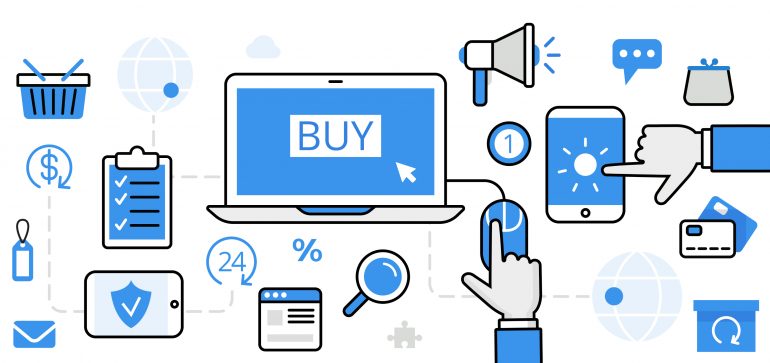
Paid traffic is a result of ads. Most businesses use Google AdWords and run a Pay Per Click (PPC) campaign. This means that every click on the ad incurs a cost for you. This can add up quickly and is usually short-lasted. Once your campaign ends, you lose that top ranking position.
Direct
Direct traffic is when someone enters your site’s URL directly into the address bar. They bypass search engines altogether and go straight to your site. This of course requires them to already be familiar with your business.
Referral
Referral traffic could come from various sources and is a form of off page SEO. Someone may click on a backlink on another site that links to yours. They could see your site listed on a third party website such as Yelp.
Another common form of referral traffic is from social media. Whether a follower clicks on a link in your profile bio or a non-follower sees your brand tagged in another post, social traffic can bring a large number of site visitors.
This is why outreach and off site SEO can be an essential SEO matter.
Evaluating Your SEO Efforts
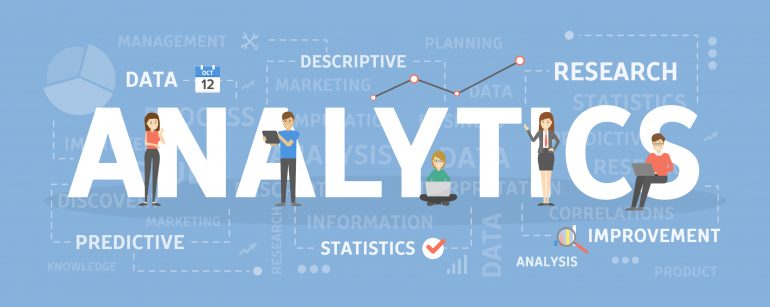
As with any business effort, you’ll want to analyze your performance to determine what key factors work and what don’t. There are a variety of ways to gauge your website’s success when it comes to SEO.
Many businesses rely on tools like Google Analytics. That’s not the only option, though. There are other third party platforms that offer performance insights.
Impression count, Click Through Rate (CTR), and keyword position ranking are some of the common SEO important metrics to track. Keep an eye on how these numbers fluctuate and adjust your strategy accordingly.
It’s smart to generate month to month traffic reports to track your progress over time. It’s encouraging to see your site traffic climb due to your SEO efforts!
The Bottom Line: Why SEO Matters

SEO gets you noticed. Plain and simple. The digital world can be very competitive which is why more and more businesses are amping up their digital marketing efforts.
SEO is undoubtedly the most important part of an online strategy. When you invest in SEO, your site rises the search engine ranks. In turn, more people see your site and are likely to click on it. Increased traffic means more potential customers, which means more sales.
If you want to learn even more, Google offers a starter SEO guide to help you understand key SEO principles on a deeper level.
SEO is a continuous effort but the pay-off is massive. We can help you kickstart and propel your SEO strategy! Check out some of our services and subscribe to our email list to get live updates on our offerings and the latest digital marketing info.
We’d love to hear your feedback and how SEO has affected your business. Leave a comment below and share this post to social media to start a conversation! We can all learn from each other and boost success.


